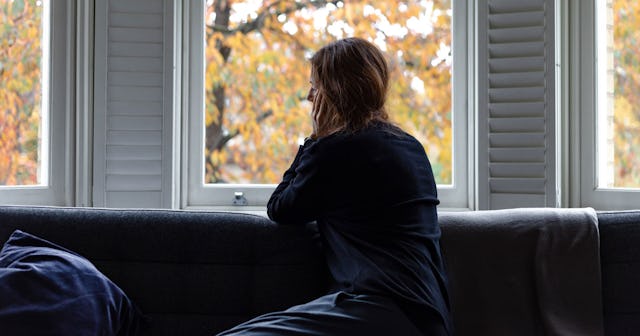What No One Tells You About Life After A Suicide Attempt

I didn’t plan for today. I mean, I knew the sun would rise, no matter what, even if it was obscured and invisible. Hidden behind a layer of long forecasted clouds. I knew the bees would buzz about my window, as they do every morning, and the birds would chirp. And I knew my children would wake with wide eyes and open, inquisitive hearts. They would leap from their beds, screaming “Mom!” and run into the living room. They would look for me. But I didn’t expect to be here. I didn’t want to be here, and I didn’t plan for today because I wasn’t supposed to be here. I wasn’t supposed to see Tuesday, yet alone another month. Another 23 days. And yet here I am, three weeks after contemplating suicide. After truly and genuinely wanting to die.
It’s hard to explain what it’s like to survive a suicide attempt. To “wake up” on the other side. My last brush with death was admittedly not as extreme as the previous two, which is to say I had means and a plan but never acted on it. I didn’t swallow the damn pills. But mentally I was prepared for my heart to stop beating, and for me to stop being. For my life to end. And it’s hard to recalibrate after the fact. It’s hard to find your footing when, for months, you couldn’t feel the ground. It’s hard to feel love and passion when things seem pointless and your life seems purposeless. And it’s hard to take solace in the “little things” when three weeks ago they didn’t matter.
Nothing mattered.
Of course, I am not alone. More than 45,000 people die by suicide in America each year, and for every death, there are 25 suicide attempts. That means that more than one million people have woken up like me — unsure and unaware. Unable to move forward or on.
Suicide is the tenth leading cause of death in the United States. It is an increasing health concern and a growing issue among young people. A 2018 study revealed that more kids, especially girls, are thinking about suicide. And suicide kills more people than liver disease, liver cancer, and cirrhosis combined. It is a an alarming statistic, one which cannot and should not be ignored.
The good news is that, in spite of it all, I am here. I am waking, walking, talking, and breathing. Medically speaking, I am healthy. Fine. I am well. The pills have been disposed of. The bottles of booze I planned to chase them with, drained. I never left my house or spent a day in the hospital. My children never found me, as I worried they would, unconscious. My heart never stopped. My stomach was never pumped. And I should be grateful. Good. After all, I am #blessed.
But I’m still struggling, particularly with basic tasks. Showering is hard. Finding the energy to eat is a chore. And playing with my children? Being fully present in their presence? I’m not there, at least not yet.
I sleep with one eye open. I’m exhausted yet I cannot seem to rest. I feel isolated and lonely yet I never get a minute of peace. I am never truly alone. I hurt in a way which cannot be articulated. My muscles are knotted. They throb. My bones and joints ache. I desperately need a hug but want to scream “don’t look at me. Don’t touch me.” I don’t feel worthy of love, and there is turmoil. Conflict. Nothing makes sense. Because I am alive and shouldn’t be. Because depression told me I didn’t want to be.
But I am taking things little by little, day by day. I exercise every morning to get my blood pumping and my heart beating. To remind myself I am still alive. I snuggle with my children constantly, holding their warm, little bodies close. “This is a gift,” I remember. “I am thankful for this moment. For today,” I say. I talk to my therapist weekly, and my psychiatrist a couple of times a month, and I push through the pain. I complete those mundane fucking tasks even when I don’t want to, because I know I need to. Because I know there is healing on the other side. After all, it’s only been three weeks. It’s only been 23 days. And I’ll get there. You can too.
If you or someone you know needs help, contact the National Suicide Prevention Lifeline at 1-800-273-8255 or contact Crisis Text Line by texting “START” to 741-741.
This article was originally published on